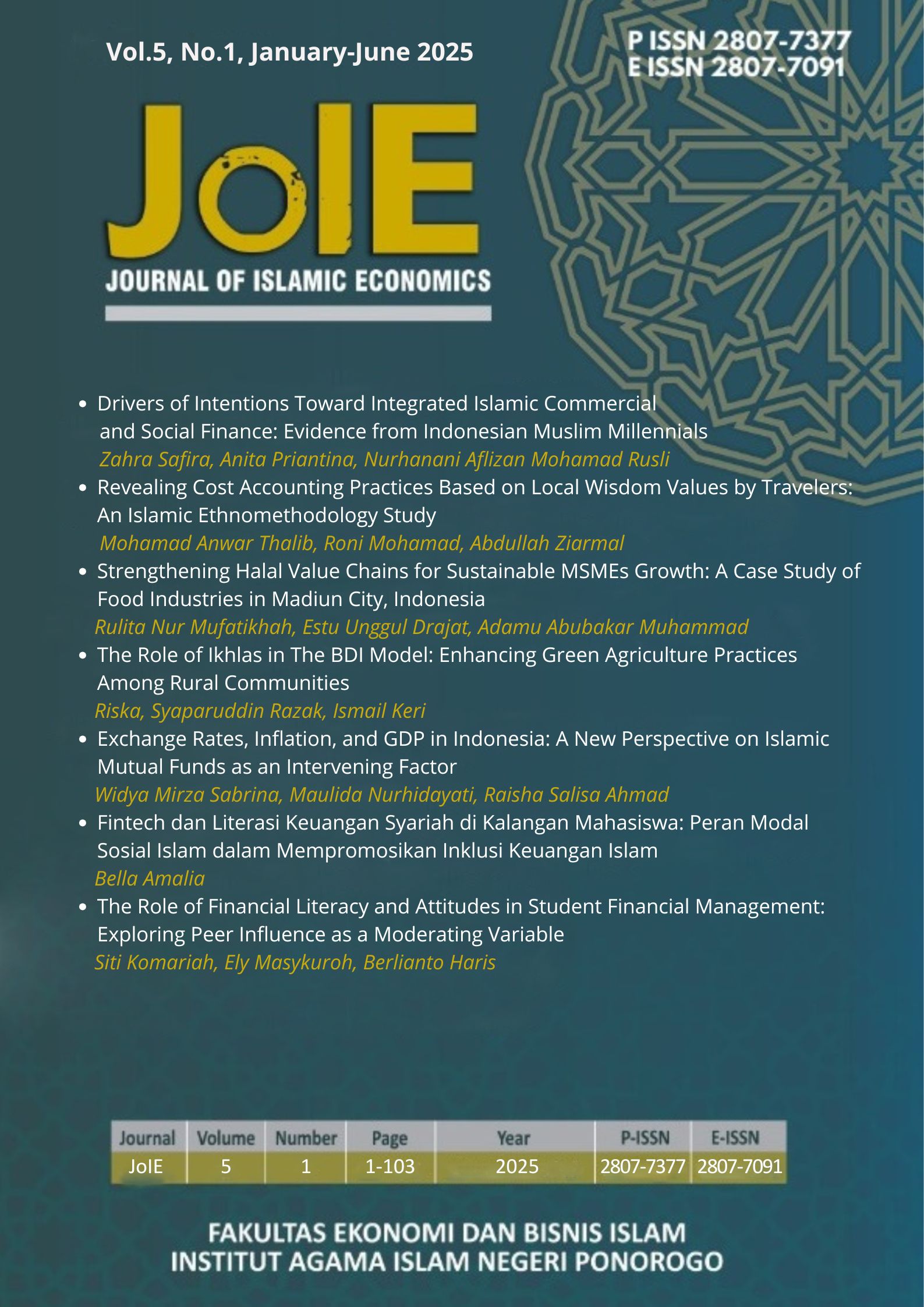Strengthening Halal Value Chains for Sustainable MSMEs Growth: A Case Study of Food Industries in Madiun City, Indonesia
DOI:
https://doi.org/10.21154/joie.v5i1.10289Keywords:
Halal value chain, MSMEs, halal assurance, sustainable growthAbstract
Introduction: This study examines the importance of analyzing the halal value chain to ensure the halal assurance of every business activity to achieve sustainable halal products. MSMEs actors should apply halal principles throughout the value chain, but some MSMEs actors still have obstacles in applying halal principles to several product value chains. Research Methods: This research uses descriptive qualitative research with data collection techniques in the form of observation, interviews, and documentation. Results: The results show that MSMEs have weaknesses in halal exit logistics and written procedures on halal product production despite strong support from the government in education, licensing, and marketing. Conclusion: For science, the results of the study play a role in enriching the theoretical knowledge of the halal value chain as a means of halal literacy. In the practical setting, a deep understanding of halal principles is a reference in strengthening the halal value chain as well as for all parties involved, namely MSMEs, suppliers, logistics service providers, government, and educators. In addition, these findings will provide an evaluation for related parties so that the implementation of the halal value chain is getting better, so that it can help encourage sustainable growth for MSMEs and advance the global halal industry.
Downloads
Published
Issue
Section
License
Copyright (c) 2025 Rulita Nur Mufatikhah, Estu Unggul Drajat, Adamu Abubakar Muhammad

This work is licensed under a Creative Commons Attribution 4.0 International License.
JoIE: Journal of Islamic Economics allows the author(s) to hold the copyright without restrictions and allow the author(s) to retain publishing rights without restrictions, also the owner of the commercial rights to the article is the author.


















